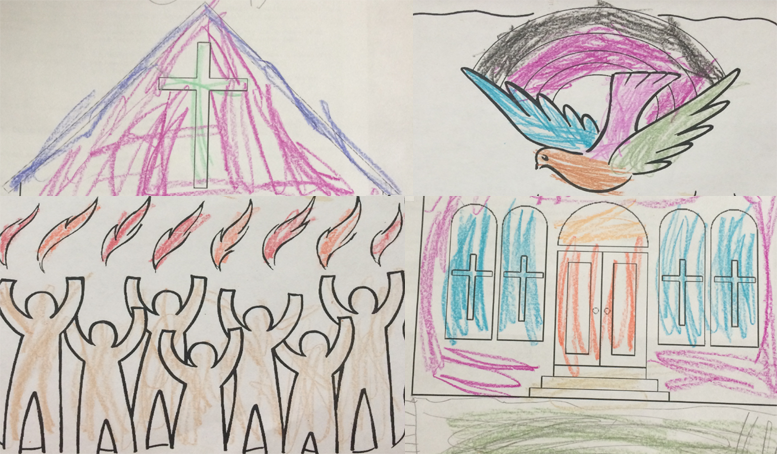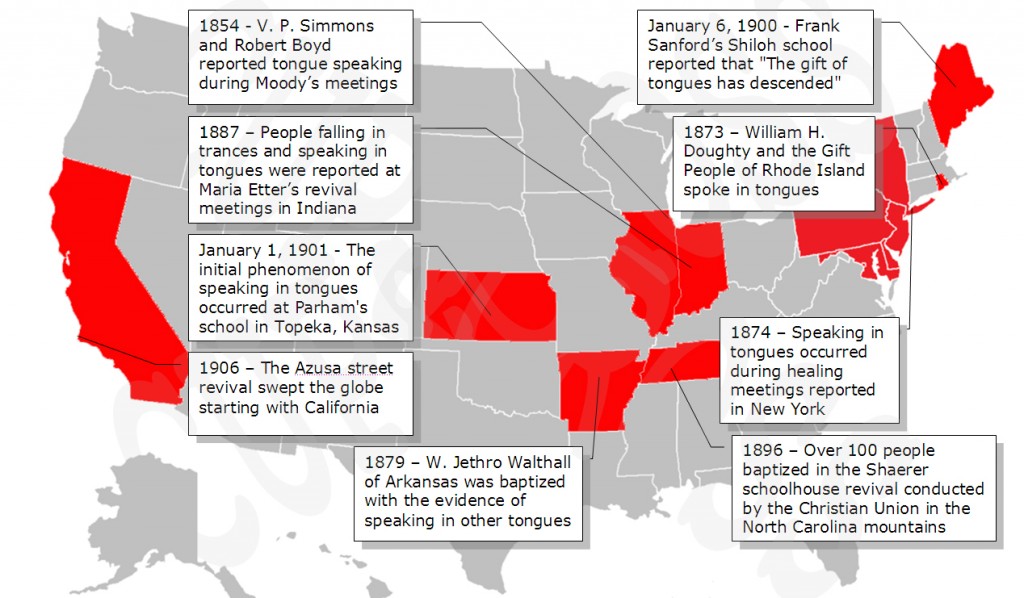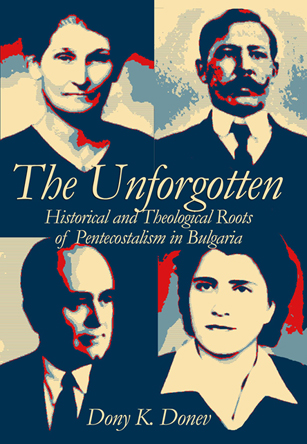The RISE of a CHURCH

God’s way out is not yucky nor mucky. When crossing the Red Sea, the Israelites’ rain boots didn’t get stuck in the muck. They walked on DRY land. Believe for the DRY path.

NEEMIAH at the second oldest church in Polk County
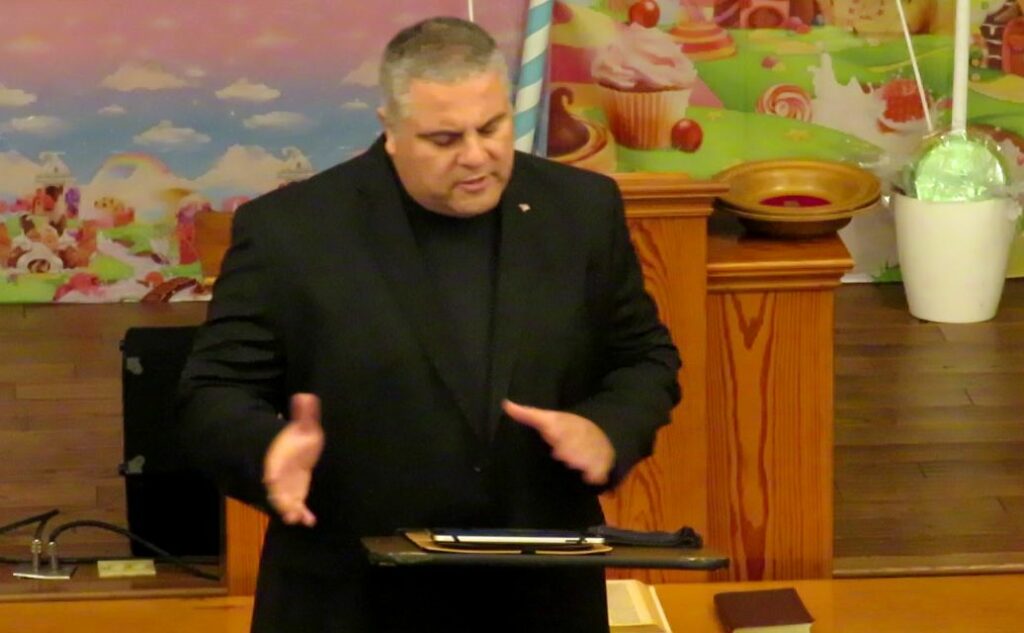
Since our Revival Harvest Campaign with the theme of Nehemiah Experience began, we have been receiving miracles reports:
- a lady seeking for the Holy Spirit for some time now, was baptized late at night after the service and began speaking in tongues while on her bed
- heavy anointing to the point of people blacking out
- a truck driver came from the street to seek God
- a spontaneous Jericho march broke out with dramatic spiritual manifestation
- right arm hurt in a car accident many years ago, began feeling sensation in muscles and ligaments again during the service
- a clear direction was given by the Holy Ghost to remain faithful to the vision

Cookson Creek Baptist Church was established in 1836 and currently stands as the 2nd oldest continued church in Polk County. While the foundation and parts of the building are originals, the church has undergone many renovations throughout the years – one of the more recent being the stone, silo-shaped teenage Sunday School classroom. The church sits alongside the beautiful creek, after which it was named, and just down the road from Cookson Creek Cemetery.
The following accounts are recorded by Lynne McClary from the Polk County Chamber of Commerce.
The year was 1936 and Cookson Creek Baptist Church was celebrating it’s 100th anniversary in Polk County, Tennessee. N. B. Fetzer attended the festivities and later wrote about it from his Nashville home.
According to his writings, “There was an immense crowd . . . many of my relatives and old friends, but I missed many faces which used to show up there on May’s Fourth Sunday.” Thomas W. Mathis had been scheduled to give a historical review of the church, as his membership dated back some 70 years. Unfortunately, “Uncle Tommy was called to his heavenly home” on Wednesday prior to the celebration.
Fetzer’s note goes on to state that Miss Mae Ella Stinnett, who served as church clerk, was the ‘power behind the throne,’ and the highlight of the day came when a 3-1/2-year-old young man, the son of Tom Green, sang several stanzas to a “catchy mountain tune”. Fetzer could not remember the youngster’s name, but was told by an uncle that everyone called him ‘Tooter’.
This year Cookson Creek celebrates year 187. The building has undergone many renovations through the years; however the foundation, as well as some of the building itself, dates back to the construction in 1836! It sits alongside the creek for which it is named and just down the road from Cookson Creek Cemetery. The creek was named for Joseph Cookson, a white man who married Jennie Hildebrand. Jennie, who was half-Cherokee, was the daughter of Michael Hildabrand. Joseph and Jennie were moved to Oklahoma during the Cherokee removal of 1838 and lived their remaining lives on the reservation.
TAGS: Blue Springs Church, Beech Springs Church, Little Hopewell Church, Cookson Creek Church, Candies Creek Church, Good Spring Church

HISTORIC SITES OF POLK COUNTY
• Ocoee Indian Village, Hatcher farm. (Early Woodland, Yuchi, and Cherokee
Indians).
• Old Fort Block house, Benton, constructed 1805-1806.
• The Hildebrand House, Ocoee River, early 1830s; oldest house in the county.
• Friendship Baptist Church, First District, 1826, the oldest church in Polk County in
continuous operation. The Columbiana Presbyterian Church was organized in 1822
near Columbus and operated for about twenty years.
• Hiwassee Old Town, oldest and largest of the Cherokee villages in Polk County, was
located on the north bank of the Hiwassee River.
• Site of the discovery of copper on Potato Creek, 1843.
• James McNair family graves, Conasauga.
• Ducktown Basin Museum, Ducktown.
• Old Federal Road, 1804; the Old Stock Road; the Old Copper Road, 1853.
• The Savannah Farm, the largest and one of the oldest farms of the county.
• Columbus, north bank of the Hiwassee River, temporary county seat of Polk County;
had a post office by 1823 and was incorporated.
• Present day site of the Benton Department Store was site of the first home in Benton
(Four Mile Stock Stand); the home of James Lindner and his Cherokee wife, a
descendant of Nancy Ward.
• The Jacob Clemmer house at Benton was built in 1842 and is now owned by Mr. and
Mrs. Kenneth Bishop.
• The Nuchols home and office, (present site of The Drug Store), was built in 1868 and
was occupied in succession by Dr. J. D. Nuchols, Dr. J. G. C. Garner, and Dr. Joseph
E. Hutchins.
• Benton’s first hotel was on the site of Matt Witt’s Store, having been moved from
Columbus in 1840. It was operated by Commodore White, J. Q. A. Lewis, William
Higgins, and last by J. L. and Ben McClary.
• Maggie’s Mill located near Springtown, erroneously believed by some to have
inspired the song “When You and I Were Young, Maggie.” (Original site is in
Canada.)
• Great Indian War Path crossed the river at Hiwassee Old Town and continued
southward to Bridgeport, Alabama.
• The Cookson’s Creek Baptist Church is the second oldest church in the county, with
the Ocoee Baptist Church, Benton, third.
MISSIONS at the oldest church in Polk County

Friendship Baptist Church located in present-day Delano is Polk County’s oldest church in continuous operation – 1826-2026!
The following accounts are recorded by Lynne McClary from the Polk County Chamber of Commerce.
Started just 7 years after the Indian removal in the Hiwassee Cession of 1819, Friendship was near what was then known as Columbus. In June 1826, 10 men and women met in Brother Wilkerson’s home north of Coe Cemetery to organize a church. An ordination service was held July 1826 with members from Eastannallee Church.
Until December 1826, services were in the Wilkerson and Funkhouser homes. At which time a simple log church was built across the road from the present building. A cornerstone still remains of the original building. In 1819, land north of the Hiwassee was ceded to the US by the Cherokee, while the land south of the river to the GA line was not given up until 1838, meaning Friendship was established in free territory 12 years before the rest of present-day Polk County was even US Territory.
A frame church was built in 1856 north of the current building. Raised soil marks that site today. Calvin Denton pastored there 40 years, but little is known about Friendship through the Civil War due to loss of records.
 In the late 1800s to early 1900s the building was used as a school until the county could build one. A box dinner was held to raise money for a bell, used for both the school and church. This bell is the only remaining item from the school and it’s located in the belfry of the current church.
In the late 1800s to early 1900s the building was used as a school until the county could build one. A box dinner was held to raise money for a bell, used for both the school and church. This bell is the only remaining item from the school and it’s located in the belfry of the current church.
The current building was built in 1908, and Friendship’s 100th year was celebrated in 1926 with an all-day singing and history from JD Clemmer. During the celebration a group of Ku Klux Klan marched out of the woods in capes and hoods, went up one aisle, out the other door, and back into the woods, after which the celebration ended.
Friendship Church is an integral part of Polk County history, and future. There’s even a time capsule packed in 1976 scheduled be opened during 2026’s Homecoming.
In 1850 William Forest was licensed to be a Baptist minister ; he was ordained by the Friendship Baptist Church in Delano , Tennessee— where his father – in – law , Samuel Short , had been the first pastor– in 1857
|
FRIENDSHIP BAPTIST CHURCH POLK COUNTY, TENNESSEE |
||
| Friendship Baptist Church was established June 8, 1826, only seven years after the Indians were removed from the area under the Hiwassee Cession of 1819.That makes Friendship the oldest church in what is now known as Polk Co., Tn. Below is a list of the available names of Pastors and Church Clerks from 1826 to 1975. | ||
|
PASTORS |
||
| 1826- Samuel Short 1844- William Forest 1846- B. W. Buford 1849- C. Hoil, E. Newton, & J. Scarbrough 1850- Calvin Denton 1884- H. C. Cook 1888- C. H. Eaton 1889- J. R. Lawrence 1890- J. P. Fore 1891- Luke Shamblin 1893- W. H. Rhymer 1897- R. J. Womac 1903- J. M. Townsley |
1905- P. A. Miller 1906- J. W. Townsend 1912- S. R. Creasman 1915- J. M. Townsend 1917- H. K. Watson 1923- B. P. Kincaid 1924- J. D. Chastain 1925- Roy Thomas 1926- J. W. Townsend 1928- H.W. Passmore, Claude Green 1931- Will Shamblin 1938- M. C. Ledford 1940- C. Doyle Doss |
1945- W. G. Smiley 1946- Charlie Helton 1948- B. P. Kincaid 1949- C. R. Green 1953- Herman Matthews 1954- M. D. Berry 1956- Willie Choat 1960- Hobson Gregg 1965- Don Wilson 1968- Wayne Cooper 1969- Jimmy Hutton 1972- Garvin Chastain 1975- Jack Nunley |
|
Church Clerks |
||
| 1826- John M. Neal 1835- Edward Frather 1836- James Morris * 1879- W. C. Hatcher 1885- G. H. Burns 1885- W. C. Hatcher 1901- Mellie Hatcher Pennell 1910- W. F. Burris |
1911- A. J. Painter 1913- A. C. Howard 1919- Lee Blackwell 1923- E. S. Carruth 1926- James Mose 1929- Haden C. Davis 1939- Martha Watkins 1940- Hershell Davis |
1946- Ulysses Coe 1957- Maxine Eaves 1958- Barbara Lance 1960- Helen Allen 1961- Haroldean Wiggins 1966- Samantha Davis 1973- Wanda Carter |
|
Cemetery Listings |
||
|
Go to Section A Part 1 Go to Section A Part 2
|
||
*Some names are missing due to lost Church records. The information below came from a booklet titled” 150 Years Of Friendship”, by Terry Blair, Wanda Carter, Johnny Coe, and Deborah Williams. The booklet was handed out to to the congregation of Friendship at the July 4th Homecoming, a celebration of the 150th year, in 1976. Thanks to Connie Baumann for supplying this information!
A BAND OF BELIEVERS on the BANKS of BARNEY CREEK
By Dallas Bogan (Reprinted with Permission. This article was published in the LaFollette Press)
While many churches in the South had already established their existence and their doctrines, an invitation went forward to those who wanted to fully establish the readings and beliefs of the Bible as it was written. With this request a small group of nine believers formed the Christian Union on the banks of Barney Creek in Monroe County, Tennessee, on August 19, 1886. Activities of this joining together on a hot scorching day in the Unicoi Mountains in eastern Tennessee are not known to any degree, but their mission was fully accomplished. R.G. Spurling was selected as pastor of the church while Richard Spurling, his father, moderated the proceedings.
The small congregation knew it was futile to “reform” their own existing churches and so decided to “form” their own church. The intent was to re-establish sound scriptual doctrines of the Bible, and to promote evangelism and Christian service.
Barney Creek still remains a small stream that flows quietly through the mountains. Livelihood in this part of the Appalachian Mountains has still much to be desired. However, early folks in this part of the mountains who sought God found the New Testament Christianity and gathered to later become the Church of God, as we know it today. At a later time the experiences of sanctification and Spirit baptism were added.
This vision of Christian unification was the spiritual desire of R.G. Spurling and his father Richard Spurling, the former being a licensed minister in the Missionary Baptist Church.
Richard Spurling was an ordained elder and began to seek God regarding the abuses he saw in the local churches around him. He was quite perterbed concerning the spiritual neglect and ill treatment he witnessed in these congregations. He was also troubled with challenging traditions and creeds that he deemed a hardship for God’s people.
Calvin, Luther and other famous reformers had brought about many changes to the church such as a “right belief” rather than a “true relationship” with Jesus Christ. These gallant reformers’ changes concentrated more-or-less on creed rather than the leading of the Holy Spirit and one’s own principles.
The focal point of R.G. Spurling was Christianity and the law of love rather than creed or doctrine, in which the latter could possibly divide Christians. He believed that the New Testament was the “only infallible rule of faith and practice” and contains everything “necessary for salvation and church government.”
Spurling was a part of the broad re-establishment that moved through the church world in the United States during the 19th century. At this time, the Christian Union, similar to other groups such as the Churches of Christ and Churches of God (Anderson, Indiana), likened to reinstate New Testament Christianity. The New Testament was given different emphasis by these groups, but all wanted to restore some part of the apostolic church. Some of these groups focused on government, some on everyday life, some on the message, but all longed to return to contemporary Christian life, an important item that had been lost in the superseding centuries. Spurling saw in some teachings that a coarseness and individuality subdued the Gospel and led to dividing the body of Christ more so than to Christian unity.
A.J. Tomlinson, a friend of R.G. Spurling’s, wrote that Spurling preached whenever and wherever he had an opportunity. Tomlinson wrote that Spurling “in this way the minds of the people were continually agitated, and gradually prepared for the work of the Spirit that was to follow. For ten years this servant of God prayed, wept and continued his ministry against much opposition and under peculiar difficulties, before seeing much fruits of his labor.”
Benjamin Hardin Irwin acquired a more intense tactic to the Christian life and taught a “third blessing” called “the fire.” He structured, in Iowa, in 1895, the Fire-Baptized Holiness Associations, which later extended around the United States. During the next year he preached in South Carolina and Georgia. He had, by 1898, organized an international Fire-Baptized Holiness Association in Anderson, South Carolina, and during this time he had published a periodical called “Live Coals of Fire.” His message was heard and accepted in eastern Tennessee and western North Carolina where Spurling was ministering.
In 1896, persuaded by Irwin’s movement, four men began a revival in the Shearer Schoolhouse near Camp Creek in Cherokee County, North Carolina. William Martin, a Methodist, along with Baptists Joe. M. Tipton, Elias Milton McNabb, and William Hanby, preached a ten-day meeting that attracted much attention to the area. Tomlinson states that “they preached a clean gospel, and urged the people to seek and obtain sanctification subsequent to justification. They prayed, fasted and wept before the Lord until a great revival was the result.”
Twenty-one years after that infamous meeting at Barney Creek, and the formation of the Christian Union, the ever-growing movement would establish themselves as the Church of God. The beckoning call of the original Barney Creek meeting has now established a worldwide membership of over 5 million in more than 145 countries.
Reports of Church of God revivals find that hundreds are getting saved and filled with the Holy Ghost, more so now that at any other time. World evangelism is the call of the Church of God through descipleship and prayer, as well as committment.
7 LAST DAYS SIGNS in 2023
Russia recently announced a stoppage of the flow of gas to the EU through the Nord Stream 1 pipeline and that the flow will not be restarted until the EU cancels its economic sanctions on Russia.
Some EU citizens are starting to suffer, and they know their suffering is going to get much worse when winter arrives.
It is not surprising:
- That the value of the Euro is at a 20-year low.
- That the high cost of utilities and food have triggered a cost-of-living problem, and many EU citizens are moving toward poverty (owning nothing but not happy).
- That more than 70,000 Czechoslovakian citizens recently marched on their capital (Prague) to protest the situation and to call for an end to the sanctions on Russia.
- That all the EU nations are anticipating more protests in the coming months.
- That this is happening and the rider on the black horse during the Tribulation Period is hyper-inflation, economic collapse, and famine (Rev. 6:5-6).
(More: On Sept. 7, 2022, EU Commission Pres. Ursula von der Leyen announced that the EU plans to impose mandatory electricity rationing and price caps on natural gas from Russia. Vladimir Putin called the plan “stupid” and said prices will go even higher.)
(More: On Sept. 8, 2022, it was reported that tens of thousands and perhaps hundreds of thousands of the sick and elderly will die; think population reduction.)
(More: On Sept. 8, 2022, it was reported that a failure of EU banks this winter will impact banks in the U.S. and the value of the dollar—major economic problems could be just months away.)
(More: On Sept. 8, 2022, it was reported that proposed legislation in Switzerland requires citizens in gas-heated buildings to keep their thermostat below 66.2 degrees F this winter. Intentional violators will be fined and could face up to three years in prison.)
(More: On Sept. 14, 2022, it was reported that the sale of appliances and other expensive items is in decline because poverty is spreading.)
Be aware that some reports say this is happening because the EU is following the World Economic Forum (WEF) agenda, and it will happen to every nation on earth (including the U.S.) because the WEF agenda is a global policy.
(My opinion: The problems in the EU and the WEF agenda guarantee that the mess this world is in will get much worse before the end of winter. The upcoming election could be critical for the survival of America.)
When asked about the signs of His coming (at the end of the Tribulation Period), Jesus replied that there will be distress of nations, with perplexity (Luke 21:25).
Many prophecy teachers have long expected global problems that will cause people to accept “the man with a plan” who will rise in the EU and be known as the Antichrist.
At the time of this writing:
- The media has reported that Britain’s Queen Elizabeth II has passed away, and Charles is preparing to take the throne as the King of England.
- Charles has attended globalist Bilderberg meetings, has been an extreme climate change fanatic, co-hosted a WEF meeting, and is a friend of Klaus Schwab, but he now says he is going to change because the King is not supposed to be political (his change may be questionable, but time will tell).
- At the UN COP26 meeting, Charles called for trillions (trillions, not billions) of dollars to be available to someone (a male ruler; some think he was referring to “the man with a plan;” the Antichrist) to immediately change the global economy, go green, and bring about the WEF Great Reset.
https://www.youtube.com/watch?v=CMRjfKhCpSo&t=17s
Here are more events that seem to indicate that we are getting close.
One, concerning climate change and going green in the U.S.: on Sept. 8, 2022, it was reported that “Californians are being asked to cut back on cooling their homes and using large appliances to prevent rolling blackouts as the state buckles under the weight of its outdated infrastructure and increasing reliance on unreliable ‘clean energy’ sources.”
Governor Newsom advised citizens to:
- Set their thermostats at 78 degrees.
- Turn off unnecessary lights.
- Avoid using large appliances.
According to the report, part of California’s power shortage problem is its shift to the WEF Great Reset plan.
The report quotes WEF founder Klaus Schwab as saying every “country, from the United States to China, must participate, and every industry, from oil and gas to tech, must be transformed.”
(FYI: On Sept. 1, 2022, it was reported that a power company took control of the smart thermostats in about 22,000 homes in Colorado, and the homeowners could not control the temperature in their own homes.)
Two, concerning deceit, Pres. Biden (the “big man” in the Biden criminal cartel) recently addressed the nation twice:
There are too many lies and too much deceit to comment on, but among other things, the “big man” said (words in parentheses are mine):
- “MAGA (Make America Great Again) Republicans represent an extremism that threatens the very foundations of our Republic.”
- “MAGA forces are determined to take this country backward — backward to an America where there is no right to choose (no right to an abortion), no right to privacy, no right to contraception, no right to marry who you love (no right to same-sex marriage).”
- “MAGA Republicans look at America and see carnage and darkness and despair. They spread fear and lies. Lies told for profit and power.”
- MAGA Republicans “are destroying American democracy.”
Notice that Biden (who calls himself a good Catholic):
- Opposes Making America Great Again.
- Champions abortion (against his Catholic faith) and same-sex marriage (against the Scriptures).
- Accuses MAGA Republicans of lying (even though he lied about uniting the U.S. during his campaign, has changed his position on abortion and same-sex marriage from against to for, is lying about Hunter, lying about inflation, lying about the U.S. border with Mexico being secure, etc.).
- Wants citizens to believe that MAGA Republicans are destroying American democracy at the same time that he is working to destroy American democracy by bringing in the New World Order.
“Woe unto them that call evil good, and good evil; that put darkness for light, and light for darkness; that put bitter for sweet, and sweet for bitter! Woe unto them that are wise in their own eyes, and prudent in their own sight! Woe unto them that are mighty to drink wine, and men of strength to mingle strong drink: Which justify the wicked for reward, and take away the righteousness of the righteous from him!” (Isa. 5:20-23).
(Something to think about: During his presidency, Biden has spent more time and money trying to kill babies in their mother’s womb than he has spent trying to get baby formula for those babies fortunate enough to be born.)
Three, concerning Israel having silver and gold, cattle and goods in the latter years and latter days: Israel is expected to start pumping gas at its big Leviathan field in about two weeks.
Some prophecy teachers have long believed that Israel’s oil and natural gas could be the hook in Gog’s jaw that leads to the Battle of Gog and Magog.
Four, concerning the coming economic collapse: U.S. Treasury Secretary Janet Yellen recently warned that the Federal Reserve strategy to bring down inflation could launch the nation into a recession.
Five, concerning the economy and a coming global economic collapse during the Tribulation Period: on Sept. 13, 2022, it was reported that the U.S. inflation rate is up slightly to 8.3%.
This sent the Dow Jones Stock Market into a steep decline, and it lost 1276 points by the end of the day.
While this was going on, Biden was celebrating his $70 billion falsely named Inflation Reduction Act on the White House lawn.
Biden has now added $4.8 trillion to the national debt (which is now approaching $31 trillion) in less than two years, and he wants to keep spending.
Six, concerning persecution, censorship, and corruption of the DOJ and FBI: on Sept. 13, 2022, MyPillow CEO Mike Lindell was approached by FBI agents and asked questions about Dominion voting machines (possibly used for election fraud); they served him with a warrant and seized his cell phone.
(More: Just one day before the seizure of Lindell’s phone, the U.S. Dept. of Justice (DOJ) admitted that it recently served more than 40 subpoenas on associates of former Pres. Trump and seized the cell phones of at least two of Trump’s top advisors. The DOJ and FBI are supposed to treat everyone the same. They are seizing phones from Trump associates, but they helped Hillary Clinton destroy hers.)
Finally, are you Rapture Ready?
If you want to be rapture ready and go to heaven, you must be born again (John 3:3). God loves you, and if you have not done so, sincerely admit that you are a sinner; believe that Jesus is the virgin-born, sinless Son of God who died for the sins of the world, was buried, and raised from the dead; ask Him to forgive your sins, cleanse you, come into your heart and be your Saviour; then tell someone that you have done this.
Preparing for the Man with a Plan :: By Daymond Duck
Pentecostal Theology of Freedom for the Postcommunist Era
“Stand fast therefore in the liberty wherewith
Christ hath made us free” for “if the Son therefore
shall make you free, ye shall be free indeed”
This paper is intended as a part of larger research entitled Theology of the Persecuted Church. It focuses on they way freedom is understood by the underground church and its successor, the postcommunist church after the fall of the Communist regime. In this sense, the research presents the theological view of freedom from the time of postmodern transition in Eastern Europe in retrospect with the times of underground worship and in dialogue with the major modern theologians. The main purpose is to construct an authentic view of freedom in the major areas of the life and ministry of the postcommunist Pentecostal church.
Postcommunist Europe
On his first official visit to West Germany in May 1989, Mikhail Gorbachev informed Chancellor Kohl that the Brezhnev doctrine had been abandoned and Moscow was no longer willing to use force to prevent democratic transformation of its satellite states. At 6:53 p.m. on November 9, 1989, a member of the new East German government gave a press conference to inform that the new East German travel law would be implemented immediately. At the East Berlin Bornholmer Strasse, the people demanded to open the border. At 10:30 p.m. the border was opened.[1] That meant the fall of the Berlin Wall and the end of the Cold War.
The unification of one Germany brought the clash of two political extremes within one nation. It brought together two Europes kept apart for half-a-century, a dynamic which introduced the continent to a new set of opportunities among which was the vision for a unified Europe and its realization.
A new set of dilemmas was introduced as well. Among all economical, political, social, cultural and simply human points of diversity, religion remained central for the process through which the European Union was emerging. The official “United in Diversity” (reminding of the American E Pluribus Unum) claimed unification, without mentioning God. The new European constitution announced that Europe draws “inspiration from the cultural, religious and humanist inheritance of Europe.”[2]
For us who lived in the last days of Communist Bulgarian, the fall of the wall was a miracle which the world witnessed. Coming out from the severe Communist persecution and surrounded by the Balkan religious wars, suddenly the country of Bulgaria experienced a time of liberation which gave the start of spiritual revival mobilizing Bulgarian Protestants. In the midst of extreme poverty, due to prolonged economical crisis, this revival became an answer for many. It also provided a sense of liberation, but not in the Western political understanding of democracy and freedom, but rather liberation toward the realization of the Kingdom, a world much higher, much better and in way more realistic than any human ideality. The liberation from sin then turns not only into a social movement, but as a theological conception it provides an alternative to the existing culture thus becoming a reaction against the surrounding context and proposing a new theological model and a new paradigm for life itself based on substantive faith and belief.
Freedom of Will
Even when approached theologically, in the Eastern European postcommunist context today, the term freedom of will carries a strong political nuance. For many Eastern European Protestants, freedom characterizes the struggle against the communism regime and the divine motivation to endure it as a calling of faith for the individual and the community.
The years before communist era were characterized with opposition against the historical monopoly of the Eastern Orthodox Church. In this context, the protestant movement in Bulgaria also struggled against spiritual dominion defending the cause of religious freedom and the right of each individual and community to believe and express beliefs.
The hundred years of Bulgarian Protestantism have been accompanied with constant struggle against oppression of conscience and will thus creating a general acceptance of free human will. This has coincided with the theology of the largest and fastest growing Evangelical movements in Bulgaria. In this context, even evangelical churches, like the Baptists, have grown to accept and practice the doctrine of free will.
Based on the political, socioeconomic and purely ecclesial factors, in postcommunist Eastern Europe, the Calvinistic paradigm of predestination and election as practiced in a Western sense are not successful. This is based partially on their new doctrinal presence within the Bulgarian reality and their untested effectiveness through under persecution. It is also natural that they are often qualified in parallel with political and religious oppression, and therefore rejected as divine attributes or actions. If human regimes are oppressive through limiting freedom and consciences, how is God to identify with such regimes and practice the same type of “horrible decree?” On the contrary, in Eastern European Protestant theology, God is seen as a Liberator of human consciences and a desire for freedom.
By no means, is this tension to be confused with a denial of the total authority of God. God remains the electing God in Jesus Christ, but how?[3] Is it through a “horrible decree” or through a personal life-changing experience defined by the Bible? Is it through an oppressive act of lawful but unconditional predetermination which God by His nature is omnipotent to implement, or through an act of supernatural transformation of humanity through divine self-sacrifice? And does this election barricade every possible human choice? No, as it is obvious in the denial of Peter; but also as seen in his restoration, that every choice of human will is answered by God through unconditional divine love.
Therefore, we experience “the secret of predestination to blessedness,” not in a cause and effect paradigm as Augustine and the Reformers, but rather through preserving its significance by experiencing the love of God.[4] Thus, the human will is freed by the love of God to receive salvation for eternity. The human freedom then is not ignored or oppressed, but on the contrary it is “placed in the context of cosmic drama” where the real bondage is not the one by God, but the one by sin which oppresses the human will and distances it to death. The Gospel, however, proclaims the victory of Christ over these oppressors thus liberating human will to its initial creation state as a gift from God.[5] This theology comes from a concrete experience of God in real life, and the quest to serve and follow God. As theology shows that the truth about God and the truth about ourselves always go together, the experience of God is a constant tension and a dynamic process, rather than blind servanthood to rigid principles that can never fully encompass the divine will. And through this experience of liberation of the human will in order that one may be free to choose salvation through Christ, God establishes His “testament of freedom.”[6]
Freedom from Oppression
As God liberates humanity from sin, He liberates it from sin’s moral and social consequences. Thus, forgiveness of sin presupposes not only the quest for sanctification and perfection after the image of God, but also the struggle against oppression and establishment of social balance. As the above shows, the postcommunist revival in Eastern Europe cannot be explored apart from the contextual political and socioeconomic dynamics. The reason for this is that the Spirit with value before God is a social spirit that makes the expression of the divine liberation the very purpose of the existence of the church.[7] The practice of this expression challenges the relationship between theology and practice as it questions theology’s epistemological and praxis relationship to the oppressed with whom Christ is crucified.[8]
As in such context, theology is challenged to identify with action, the church must choose between contextualizing and enforcing theology. To choose contextualization is to attempt to relate it to the existing culture thus creating a state of relativism. Such approach is observed in some Asian and Black theology. The danger is to go beyond the boundary pass which theology ceases being theology in action and becomes simply a nominal religious culture. In Eastern Europe, such approach has been long-practiced by the Eastern Orthodox and has unquestionably resulted in nominal religion. The nominality of its expression has been a factor preventing the experience of God, thus denouncing the very reason for the church’s existence. Attempts to restore the Eastern Orthodox “symphony” between church and state have altered the existence of the independent synods which claim the succession of the same historical religious institution.
The second direction, to move toward enforcement of theology after the paradigm proposed by Liberation theology, is quiet a dangerous approach often resulting in armed conflicts. Keeping in mind the historical tension on the Balkans and Bulgaria’s success in undergoing the postcommunist transition without an armed civil conflict, this approach is virtually inapplicable. Therefore, an alternative must be proposed before history itself become oppression.
In this context, a move toward a theology of freedom seems most reasonable. It must purpose to prevent political and socioeconomic oppressions which are already present in various legal and illegal forms in Bulgaria. Such paradigm must also be concerned with intrachurch oppressive tensions which are present both among and within religious denominations, striving especially against such oppressive modes that come from the desire of an oppressed mentality to oppress others.
Such working model of social transformation is presented in Paul’s Epistle to Philemon. An older interpretation of the book explains that Onesimus, a runaway slave, meets Paul in prison, becomes a Christian and is sent by Paul back to his master. A more cotemporary interpretation claims that Onesimus is a slave sent by Philemon to help care for Paul in prison where he converts to Christianity and desires to stay with Paul as a missionary associate.
Regardless of the interpretation of the story plot, the epistle carefully presents a more in-depth set of problems that deal with persecution, imperialism, slavery, mastership, classes, ownership, imprisonment and above all justice. It further makes a more aggressive mood and places the church, represented in the text not merely by masses, but by the very divine appointment of apostolic authority.
The theme of imprisonment as a direct result of persecution is clearly present through the epistle’s plot and more specifically verses 1, 9, 13 where Paul uses the expression “prisoner of Christ” to describe his present status. The expression “prisoner of Christ” carries a sense of belongingness making the phrase different than the sometimes rendered “prisoner for Christ.” While the latter wrong rendering moves the focus toward the purpose of Paul’s imprisonment, the Greek genitive in the phrase “prisoner of Christ” denotes ownership. Although imprisoned in a Roman prison and kept by a Roman guard, Paul denies the Roman Empire ownership of himself, thus claming that he is owned by Christ alone. This is also a denial of the Roman citizenship that has led to this oppressive state of persecution and the recognition of a citizenship in the divine reality of liberation.
Paul’s negation goes a step further, proposing that while the Roman Empire may be authoritative in the temporal context, by no means it is authoritative in the spiritual eternal reality. Having established the temporality of Rome and the eternity of God, Paul denies to the Roman Empire the right to pronounce judgment over social injustice and to establish social status or world order, proposing that no one but the Christian church is the agent divinely designed and supernaturally equipped for these functions. The social injustice of persecution and wrongful imprisonment, the social tensions between classes, the problems within the church and every dilemma presented in the epistle are to be judged by no one but God through his elect. The reality of the situation is that the church is experiencing severe persecuting because the Roman Empire is denying the church social space. Paul, however, denies the reality of such oppressive human system and claims that the church is the one that must deny social space for oppressive structures as the Roman Empire.
The text calls for revolution; not merely, a revolution in the physical violent sense, but a revolution of the mind where human existence and mentality are liberated through Biblical paradigm combined with divine supernatural power to participate in a new spiritual social reality where justice is set by the standard of God. Such a move calls for a new paradigm and for a theology of freedom which creates an anti-culture and an alternative culture to the existing oppressive system. Such idea challenges the church with the claim that Christianity is and should be a scandal and an offence to the world, and not merely a religion but the belief that “Jesus is the most hazardous of all hazards.”[9]
Feast of Freedom or the Bulgarian Easter
Amidst political and socioeconomic crises since the fall of the Berlin Wall, Bulgaria has experienced a rebirth of Bulgarian spirituality. Many observers have referred to this restoration process as the rebirth of the Bulgarian Easter, and even which historically has been connected with the unity and power of the Bulgarian nation.
Bulgaria accepted a Christian country in 864 AD under the reign of Kniaz Boris I. A millennium later, in the middle of the 19th century, Bulgaria found itself occupied by the Ottoman Empire and religiously restricted by the Greek Orthodox Patriarchy which dictated the religious expression of the Bulgarian church.
On April 3, 1860, during Easter Sunday service in Constantinople, the Bulgarian bishop Illarion of Makriopol expressed the will of the Bulgarian people by solemnly proclaiming the separation of the Bulgarian church from the patriarchal in Constantinople. The day commemorating the Resurrection of Jesus Christ coincided with the resuscitation of the Bulgarian people. Although, the struggle continued for another decade, under the influence of Russia, Turkey was forced to legally recognize the independence of the Bulgarian Orthodox Church. In 1870 a firman of the sultan decreed the establishment of an autonomous Bulgarian church institution.
The connection between the historical Bulgarian Easter and the contemporary rebirth of Bulgarian spirituality has been used in many aspects of the Bulgarian politics and culture at the beginning of the 21st century. As part of the Eastern Church, Bulgarian orthodox theology pays much more attention to the resurrection rather than to the birth of Christ thus placing its eschatological hope in a future experience rather then a past one. Such dynamic is natural, as the acceptance of Christianity in Bulgaria purposes to bring hope in national politics and communal life. Thus, in an almost historical tradition, the Bulgarian Easter represents the Bulgarian eschatological hope for a supernatural national revival. It also communicates with the sense of liberation from political, economical and religious oppression and a longing for the freedom to live life.
The Bulgarian Easter then provides an alternative to the present moment of tension and straggle in the crucifixion. Similar to Moltmann’s view of the resurrection of Christ, the Bulgarian hope foresees the resurrection of the Bulgarian nation as a divine act of protest against oppression and injustice and as recognition of God’s passion for life.[10] Thus, the resurrection is an alternative not only to the present world, but also to the reality of eternal death.
Death is therefore seen not only as an agent of eternity, but also as an agent of fear, suffering and oppression in the present reality which affects life in all its economical, political, social and even religious aspects. As death diminishes the value of life, the liberating power from Easter often remains ignored. But in order for the church to continue being a church, it must speak as a witness of the resurrection which is impossible without participating in God’s divine liberation which recreates the word to its original state of creation. Thus, the hope of Easter means rebirth of the living hope.
The resurrection hope is an influential factor which directs the life dynamics of the church beyond its walls. Being liberated from sin, the believer desires the liberation of others and claims the right to serve. But true Biblical servanthood cannot exist and therefore does not tolerate oppression, thus becoming a social transformation factor in the midst of oppressive cultures. The resurrected church rebels against the destruction of life and the denial of the right of very human to live. But different than other human systems, the church does not feed off its resistance against oppression. Its source of power is the eschatological hope for the full restoration of life and its eternal continuation in eternity.
A final question must be raised about the pessimistic character of such hope, as traditional evangelical eschatology in Bulgaria has been premillennial and due to its Pentecostal majority clearly pretribulation. Such eschatological views, at large, have been considered to be pessimistic and escapist in nature due to their strong focus on the future. Yet, such determinative presupposition seems inaccurate and much limited in its observation when applied within the postcommunist context where Protestant churches have been greatly involved in the struggle against oppressive regimes and constraining politics even to the point of martyrdom.
It is then natural, that in the underground context of persecution it is unthinkable for the church to identify with the regime in anyway. Actually, such identification is vied by the believers as spiritual treason and cooperation with authority is viewed as backsliding. By no means, however, is such a premillennial eschatological view in this context pessimistic for the church. Neither does the church remain unconcerned with the present reality. On the contrary, through its very act of negation of the right of an oppressive system to dictate reality, the church establishes an alternative culture which is the Kingdom of God. Thus in the midst of persecution and oppression, the church remains in its Biblical boundaries as an agent of the Kingdom of God by providing eschatological hope.
Yes, this eschatological view is escapist, as it promotes eternal separation from the oppressive reality. What other alternative can a persecuted and underground church find to survive and relate to the Biblical image of the ecclesia and at the same time it is clearly concerned with the transformation of the present world as shown above? For while its pessimism concerns the oppressive system of the world, its optimism declares the church as an already-reality in which freedom of sin, death and oppression and eternity with God is celebrated. Therefore, the church itself remains an optimistic reality and optimistic eschatological hope. For, without this hope the tension of life toward future and even life it self will vanish.[11] Without hope for the beyond, we remain in the now for eternity.
Epilogue
Due to its relational and reactional role to historical process, Eastern European postcommunist theology is a new historical and theological event. Yet, as theology of freedom, it relates to other theological approaches internationally. This similarity is enforced by the approaching postmodern era which the Bulgarian nation seems unprepared to understand. In such context, the church and its theology become the agents providing answers to social tensions.
Postcommunist theology provides a point of departure from the oppressive system of the communist regime toward a new social and ecclesial alternative. Such dynamic is by no means new to the Protestant movement in Bulgaria, which has dealt successfully with these same issues even in more severe context of underground existence and persecution. Therefore, the church has proved its commitment to identify with the oppressed through addressing and engaging its experience through the experience of God and its adequate and substantive theological interpretation. Such approach provides an alternative to oppressive system and structures, unquestionably critiques their tools and methods, and rebukes the agents who represent and practice them, thus denying them place in history.
A further concern for developing strategies for social transformation is also strongly present including education, law, politics and economics. These dynamics employ Christians in a common task and motivate the church for further development and implementation in order to connect theology with practice and thus to fulfill the divine calling for church’s role in the processes of restoration of justice and social transformation, both now and eschatologically.
Bibliography
Anderson, David E. “European Union Debate on Religion in Constitution Continues”
May 26, 2004.
Barth, Karl (tr. E.C. Hoskyns), The Epistle to the Romans (Oxford: Oxford University
Press: n/a).
Ford, David F. ed., The Modern Theologians (Malden: Blackwell Publishers, 1997).
Geffrey B. Kelly & F. Burton Nelson, A Testament to Freedom: The Essential Writings
of Dietrich Bonhoeffer (San Francisco: Harper Publishing House, 1995).
Green, Clifford. Karl Barth: Theologian of Freedom (Minneapolis: Fortress Press, 1989).
Grentz, Stanley J. Theology for the Community of God (Grand Rapids: Eerdmans
Publishing Company, 1994).
Johnson, Ed. Associated Press, June 19, 2004.
Moltmann, Jürgen. The Power of the Powerless, (Norwich: SCM Press Ltd., 1983).
Taylor, Mark K. Paul Tillich: Theologian of the Boundaries (London: Collins, 1987).
[1] The Fall of the Berlin Wall, http://www.dailysoft.com/berlinwall/history/fall-of-berlinwall.htm June 29, 2004; also Jeremy Isaacs and Taylor Downing, The Cold War, Thomas Fleming, The Berlin Wall and Wolfgang Schneider, Leipziger Demotagebuch.
[2] Ed Johnson, Associated Press, June 19, 2004 and David E. Anderson, “European Union Debate on Religion in Constitution Continues” May 26, 2004.
[3] Clifford Green, Karl Barth: Theologian of Freedom (Minneapolis: Fortress Press, 1989), 184.
[4] Karl Barth, (tr. E.C. Hoskyns), The Epistle to the Romans (Oxford: Oxford University Press: n/a), 324.
[5] Stanley J. Grentz, Theology for the Community of God (Grand Rapids: Eerdmans Publishing Company, 1994), 437.
[6] Geffrey B. Kelly & F. Burton Nelson, A Testament to Freedom: The Essential Writings of Dietrich Bonhoeffer (San Francisco: Harper Publishing House, 1995).
[7] Green, 106.
[8] David F. Ford, ed., The Modern Theologians (Malden: Blackwell Publishers, 1997), 369.
[9] Barth, 99.
[10] Jürgen Moltmann, The Power of the Powerless, (Norwich: SCM Press Ltd., 1983).
[11] Mark K. Taylor, Paul Tillich: Theologian of the Boundaries (London: Collins, 1987), 325.
Another denomination splits from the Bulgarian Church of God
One more denomination has split from the Bulgarian Church of God. After a year of struggles and dilemmas, the annual report indexing the state of the church shows a new denomination registered with the municipality court in the capital Sofia. The new Philadelphia church has emerged from an association of Romani pastors with a similar name that has existed and operated for almost 15 years. This is the 11th officially registered fraction leaving the denomination since the split of 2005. Two more churches, Mostar and Rebirth, too seem to have ceased meetings within the last year after the sale of the Bulgarian Ministry Center in the capital Sofia. The Center which broke ground in 2001 and was dedicated in 2011, hosted a number of strategic Church of God congregations during its decade of operation. Since 2005, most older Romani congregations exist with dual registration alongside the national alliance of Church of God-United (unitarian). With the current split, the total number of fractions separating from the original denomination now exceeds 13 (if not 14):
- Bulgarian Church of God (27.12.1990)
- Church of God in Bulgaria (23.01.2006)
- God’s Church (13938/2006: 07.02.2007)
- Church of God-12 (Sofia, Rodostono)
- New Generation Church of God (05.04.2000)
- Bethesda Church of God (27.12.2010)
- BulLiv Church of God (15.01.2000)
- New Life Church of God (06.11.2000)
- Bulgarian Church of God – Sofia (4996/2003 Sredetz, E.Georgiev Bul. 2, apt. 4)
- Bridge Church of God (50/2013)
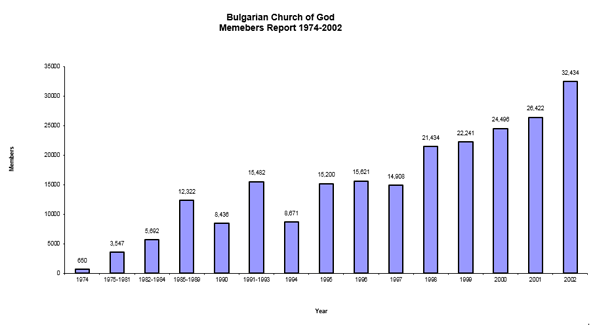
21st Annual Conference of Bulgarian Church Held in Las Vegas
Full Gospel Pentecost Sunday
I keep on repeating this through the years, but the need for the constant repetition comes from the simple fact that among new doctrinal teachings and Hillsong style of worship the True Message of Pentecost remains long forgotten
- Salvation – That a man must be saved while the hour of grace is still upon us has been that teaching of every protestant evangelical since the Reformation. Why people attend church all their lives without getting saved is beyond me. But I do know that the commitment of the CHURCH to REVIVAL brings people to SALVATION.
- Sanctification – The Wesleyan teaching of sanctification resolves that the sanctification of the believer is definite. This means that though it may progress and evolve through time, as the believer gets closer to God in his/her daily walk, sanctification must become ENTIRE i.e. allowing NO sin to abide in the believer’s body, soul or spirit. Without ENTIRE sanctification resulting in holiness, no one will ever see God (Heb. 12:14).
- Holy Ghost Baptism – The doctrine of the Baptism with the Holy Ghost means that when baptized we speak in one tongue with God because we are ONE with His Spirit. Not just in us or upon us, but that we are IN the Spirit as John was on the day of Revelation.
- Healing in the Atonement of Christ belongs to every believer. This means you, your family and your church members. The healing provided in the Atonement is for ALL believers – no exception. It is also for ALL sickness, disease, viruses, infections, tumors and cancers. But that it belongs to does not yet mean that it has been received by the believer. For this reason, God does not stop healing neither in this age nor through eternity, as the leaves of the Tree of Life in the New Jerusalem are still and forever for the healing (Rev. 22:2)
- The Second Coming of Christ for Pentecostals is not simply pre-millennial, but also pre-Tribulation. There have been MANY teachings on the End Times until today. Post-millennials claim we live in the Millennium even now anticipating the return of the Lord; a-millennials that there will be no Millennium at all. Post-tribulationists expect his return at the end of the Tribulation, mid-post-tribulationists in the middle. But in Pentecost, we expect Christ to return before the Tribulation that we may be saved from the hour of trial (Rev. 3:10) and before the Millennium so we may reign with Him 1,000 years. Any other message is no message of hope for the Church of the Living God.
Speaking in Tongues in America Prior to the Azusa Street Revival of 1906
April, 1906 – The Azusa street revival swept the globe starting with California
January 1, 1901– The initial phenomenon of speaking in tongues occurred at Parham’s school in Topeka, Kansas
January 6, 1900 – Frank Sanford’s Shiloh school reported that “The gift of tongues has descended”
1896 – Over 100 people baptized in the Shaerer schoolhouse revival conducted by the Christian Union in the North Carolina mountains
1887 – People falling in trances and speaking in tongues were reported at Maria Etter’s revival meetings in Indiana
1874 – Speaking in tongues occurred during healing meetings reported in New York
1873 – William H. Doughty and the Gift People of Rhode Island spoke in tongues
1854 – V. P. Simmons and Robert Boyd reported tongue speaking during Moody’s meetings
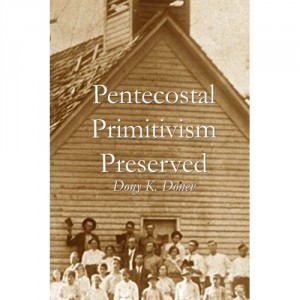
FURTHER READING:
Church of God (Cleveland, TN)
- Alive, alive! (A personal testimony)
- Church of God Primitivism
- Bulgarian Church of God
- J.W. Buckalew
- Why revival came? by Dr. Charles Conn
Azusa Street Revival of 1906
- Lucy F. Farrow: The Forgotten Apostle of Azusa
- The FORGOTTEN ROOTS OF THE AZUSA STREET REVIVAL
- Azusa Street’s Apostolic Faith Renewed
- Azusa Street Sermons
- Pentecostal Primitivism Preserved
Prior to Azusa Street Revival of 1906
- First person to speak in tongues in the Assemblies of God was William Jethro Walthall of the Holiness Baptist Churches of Southwestern Arkansas
- The Work of the Spirit in Rhode Island (1874-75)
- Speaking in Tongues in America Prior to the Azusa Street Revival
- WAR ON THE SAINTS: Revival Dawn and the Baptism of the Spirit
- How Jezebel Killed One of the Greatest Revivals Ever
The Unforgotten: Historical and Theological Roots of Pentecostalism in Bulgaria
SEE MORE at Amazon.com by clicking this link
The Istanbul Convention introduces a 3rd Social Gender
“Yesterday, the European Parliament supported the Istanbul Convention. From the Bulgarian Socialist Party, in the 4th consecutive National Assembly, we are introducing a Law on Combating Domestic Violence, but behind the scene of this noble cause, the Istanbul Convention introduces a third social gender, different from the biological male or female, into European legislation.” said BSP leader Kornelia Ninova from the parliamentary rostrum.
According to her, the EP ratified the convention, which means that it becomes a Union obligation and European law, which stands above national law.
“The Court of the EU in 2021 confirmed that the EU can ratify the convention without the member states having confirmed it unanimously. 6 countries are against it. The EU Council asked the EP to accept the decision and yesterday it was accepted by an overwhelming majority. Yesterday, Bulgarian MEPs from all parliamentary groups voted ‘for’. Yesterday Sergey Stanishev and Elena Yoncheva voted ‘for’, and the other colleagues from BSP were silent. For these people, ours and yours, there is no Constitution of Bulgaria and decisions of the Constitutional Court. It does not matter to them the opinion of 80% of Bulgarian citizens and religions. There is no national sovereignty,” added Kornelia Ninova.
She called for support for the referendum on banning gender ideology in schools. “Your signature today is an investment in the life and future of the children and of Bulgaria“, emphasized Ninova.
“Tomorrow, Stanishev is organizing a conference on the modern left. This is not a modern left. This is their left-gender ideology. For us, the modern left is something else – workers’ rights, ecology, a healthy lifestyle. For us, these are progressive topics. For them gender is progressive left. And that is why this is an attack on BSP. And this fight is part of BSP‘s downfall during elections. You don’t know how strong is this external pressure. BSP is the only party which is against this, from start to finish, for 6 years, but this is not a party issue, but a national cause, the future of our children,” said Kornelia Ninova.


